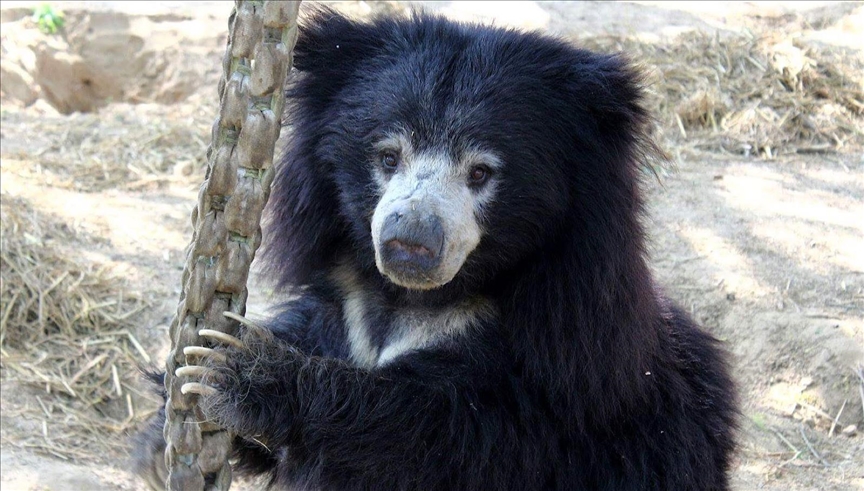Ecuador gives legal rights to wild animals
Decision prompted by case of woolly monkey taken from wild, raised as pet for 18 years
 FILE PHOTO
FILE PHOTO
BOGOTA, Colombia
Wild animals obtained another convincing victory from the justice system in Ecuador.
A judge Tuesday denied a habeas corpus to a group of people wanting authorities to return a sloth bear it had captured and kept since 2018.
The sloth bear was taken from its habitat and raised as a pet in a restaurant in the city of Tena. After a complaint, authorities removed the animal and took it to a rescue and rehabilitation center.
“The animal was overweight, with damaged teeth and nails due to years of captivity and improper breeding,” according to Animal Protection Ecuador.
Those who had the bear in captivity filed a habeas corpus to have the animal returned, arguing that they considered it to be their property.
But a judge on the Judiciary Council of Napo denied the request, arguing that wild animals are not pets and the sloth bear would not be returned.
The decision follows a ruling by the Constitutional Court that recognized the legal rights of animals in Ecuador.
That ruling was the result of another habeas corpus filed by Ana Beatriz Burbano Proano on behalf of Estrellita, a woolly monkey that wore clothes, ate with cutlery and slept in a bed.
Estrellita was taken from its habitat when it was just 1 month old, lived for 18 years with Burbano, was then confiscated by environmental authorities and finally died one month later after being relocated to a zoo.
In the decision, the court in a seven to two vote ruled that animals are subjected to rights.
Although Ecuador had already recognized the rights of nature years ago, animals were not included. With the ruling, the court established that animals are protected in their own right, in addition to being protected by the rights of nature.
Now, animals qualify as “subjects of law,” which elevates them to a new level of protection.
“Wild species have the right not to be hunted, fished, captured, collected, extracted, kept, retained, trafficked, traded, commercialized or exchanged,” the court said in the ruling.
Constitutional experts said Ecuador has become the first country to give legal rights to wild animals.
Following that move, Chile is also seeking to recognize animal rights in legislation.


